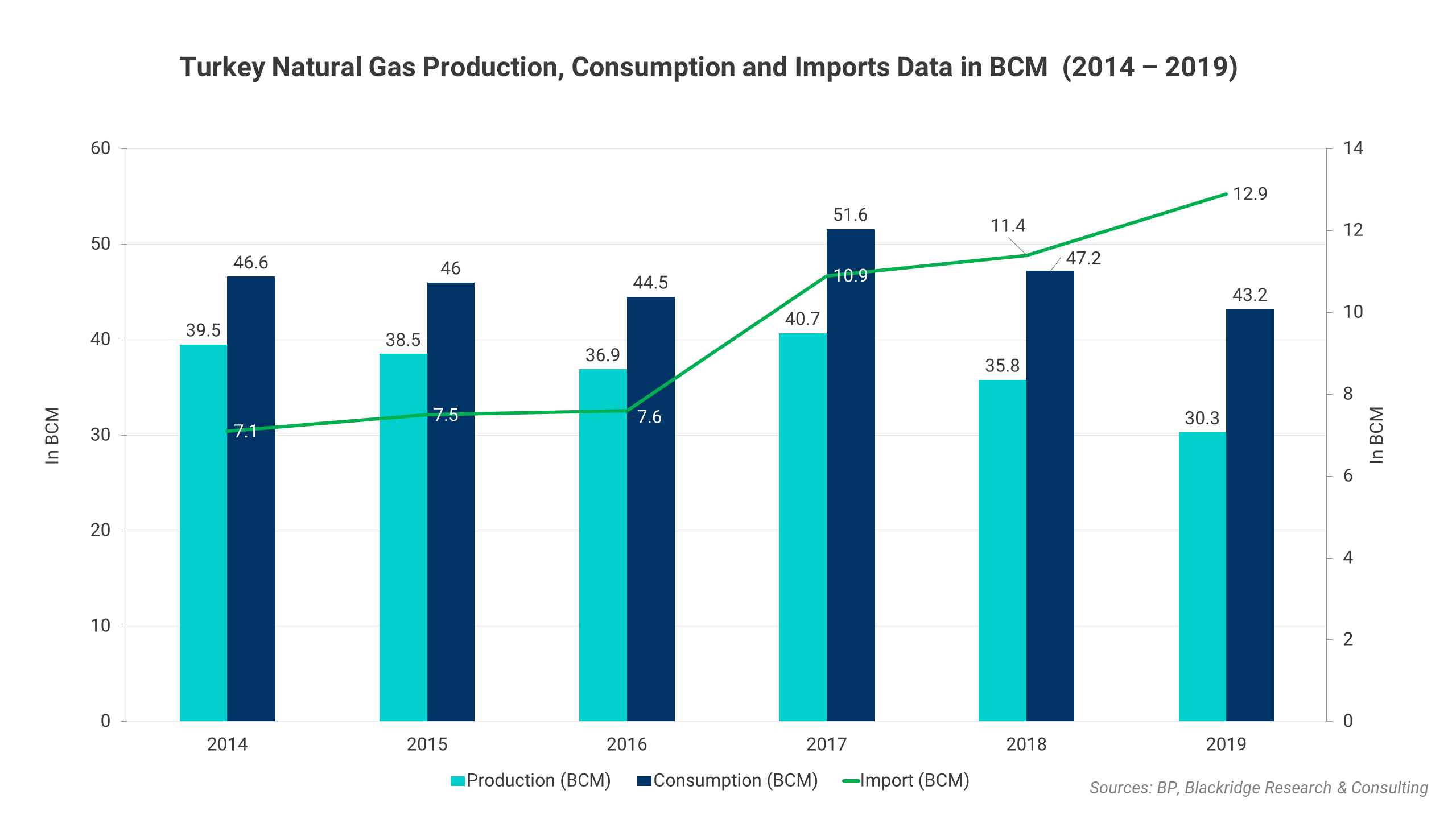Table of Contents
President Erdogan of Turkey announced the natural gas discovery of 320 BCM in the black sea area by their drillship named Fatih in the Tuna-1 zone. This latest discovery, worth billions, is found at a depth of 2,100 meters. There are plans to drill further up to 3,500 to 4,000 meters.
This significant discovery can help Turkey transition from a net gas importer to a net gas exporter and reduce Turkey's dependence on countries like Azerbaijan, Russia, and Iran as far as the gas imports are concerned.
Turkey imported around 30% of its gas requirement, which is 12.9 BCM in 2019, but the current discovery will benefit Turkey in reducing its trade deficit.
Turkey is mired in territorial disputes with Greece in the eastern Mediterranean as it searches for oil and gas in contested waters. France has temporarily increased its military presence to ward off Turkish steps. However, the new gas discovering is within the drilling region of Turkey and will have no severe impact on the development of the gas field. Turkey is also intensifying the drilling in the East Mediterranean with Yavuz and Fatih drillship.
The gas discovery also places a favorable impact on Turkey's foreign policy. Turkey will be a leading gas producer in Europe and can have its flexible foreign policy and increase its regional dominance in the Black Sea region.
However, Turkey's challenge is to develop an offshore gas field requiring massive investment to develop by 2023. Turkish President Recep Tayyip Erdogan said, "The 320 billion cubic meters of natural gas reserves will be ready for public consumption by 2023”.
A slump in gas prices has forced upstream companies from any new development, and ongoing political tensions between Turkey and Greece in the Mediterranean could delay the development of the gas field. 
The decrease in gas demand in Turkey observed since 2017 as seen in the table is because of an increase in coal-fired and renewable energy generation. Turkey's primary task remains for it to analyze geology and estimate the exact amount of gas reserves present to plan future gas imports because given the pandemic uncertainty the upstream companies are avoiding further investments in offshore drilling.






Leave a Comment
We love hearing from our readers and value your feedback. If you have any questions or comments about our content, feel free to leave a comment below.
We read every comment and do our best to respond to them all.